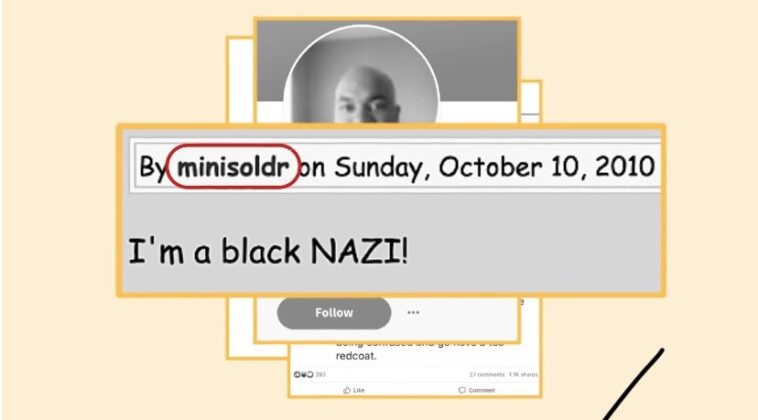Mark Robinson faces backlash after making inflammatory comments, including calling himself a “Black Nazi.”
Mark Robinson, the current lieutenant governor of North Carolina and a rising star in the Republican Party, has ignited controversy by calling himself a “Black Nazi.” This declaration, combined with his history of inflammatory remarks, has raised eyebrows and sparked widespread debate.
Robinson’s comments stand in stark contrast to his public stances on various social issues, particularly regarding transgender rights and abortion. Known for his firm beliefs, he has openly argued that individuals should use bathrooms corresponding to their assigned gender at birth. At a campaign rally in February 2024,
He stated, “If you’re a man on Friday night, and all the sudden Saturday, you feel like a woman, and you want to go in the women’s bathroom in the mall, you will be arrested.”
This position reflects his hardline approach to gender identity issues, which many find divisive.
However, Robinson’s private comments reveal a different side. Under the username “minisoldr” on the adult site Nude Africa, he described sexual experiences from his teenage years that he claims still arouse him. He recounted memories of peeping on women in public gym showers as a 14-year-old. CNN has chosen not to publish the graphic details of his accounts, but the nature of these comments raises significant ethical questions about his character and public persona.
In an interview with CNN, Robinson vehemently denied making the comments attributed to him on Nude Africa. “This is not us. These are not our words. And this is not anything that is characteristic of me,” he claimed. Despite evidence connecting him to the username, he dismissed the allegations as “tabloid trash,” insisting that he would not engage with what he described as manufactured lies.
Robinson’s history is filled with controversial statements. In his campaign for lieutenant governor in 2020, he advocated for a complete abortion ban without exceptions. Later, he expressed regret for facilitating his wife’s abortion in the 1980s, only to support a “heartbeat” bill that would restrict abortions around six weeks, with limited exceptions.
The recent comments on Nude Africa, combined with his prior statements, have led some critics to label him a hypocrite. While he publicly condemns certain behaviors, his private admissions contradict his public persona. His comments about sexual arousal and preferences, including an affinity for transgender pornography, have shocked many and fueled discussions about his genuine beliefs.
Robinson has also made disparaging remarks about civil rights figures. He criticized Martin Luther King Jr. in harsh terms, leading some to question his standing in the African American community. In response to criticism, he stated, “I’m not in the KKK. They don’t let blacks join. If I was in the KKK I would have called him Martin Lucifer Koon!” Such statements have further polarized opinions about his character and political agenda.
His recent acknowledgment of himself as a “Black Nazi” has escalated the outrage. This self-identification raises profound questions about his understanding of history and identity. Critics argue that such language diminishes the suffering of those who faced persecution under Nazi ideology.
As Robinson campaigns for governor, he faces significant challenges. Despite endorsements from prominent figures like former President Donald Trump and the North Carolina Republican Party, recent polling indicates that he is trailing behind his opponent, Democrat Josh Stein. Robinson’s controversial history, including his mocking of school shooting survivors and his extreme views on abortion, may contribute to his dwindling support.
In light of these revelations, many North Carolinians are left wondering how Robinson’s statements will affect his political future. His candidacy represents a critical moment for the Republican Party in North Carolina. Will they continue to support a figure whose comments alienate many voters? As the election approaches, the implications of Robinson’s words will likely play a significant role in shaping the political landscape.
The controversy surrounding Mark Robinson serves as a reminder of the complexities and challenges within political discourse. As he navigates the scrutiny of his past remarks and current assertions, the future of his campaign remains uncertain. With public opinion shifting rapidly, it will be essential for Robinson to address these controversies head-on if he hopes to win the support of a diverse electorate.






Join the Community and Be a Part of the Conversation
You must be logged in or registered to post a comment.